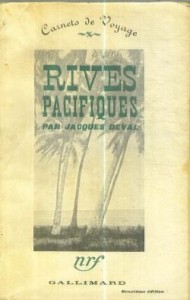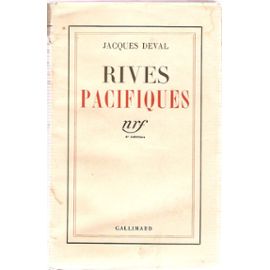Posted: June 4th, 2014 | No Comments »
Calling all Beijingers – if you’re not aware of, or are not a member of the Royal Asiatic Society Beijing it’s time to get along – they’re having a one year anniversary event this June 8th….
Dear Friends of RASBJ – Â Â Â Â Â Â Â Â Â Â Â Â Â Â Â Â Â Â Â Â Â Â Â Â Â Â Â Â 
Thanks to your support​, RASChina Beijing Chapter (RASBJ) has enjoyed a successful first year of informal operation and is now  formalizing  its structure and status.
​Accordingly, you are warmly invited to attend a combined celebration and Extraordinary General Meeting on Sunday June 8th, 3-5pm at Matthew Hu’s Courtyard Institute, Zhonglao Hutong #28, just east of Jingshan Park.  Please find attached an invitation with the Agenda and a map.
​Please come to learn more about RASBJ, tell us what you want from RASBJ, hopefully become a Member—and enjoy some refreshments in good company.
​There will be no elections or voting at this EGM, but at our first formal AGM in November, ​Members will have the opportunity, rare in China, to stand for formal and open Election by other Members, according to The Constitution.
​Kindly RSVP by May 31 to: membership@rasbj.org, so that we can cater for you!
Posted: June 4th, 2014 | 1 Comment »
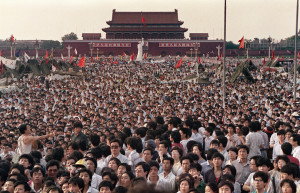
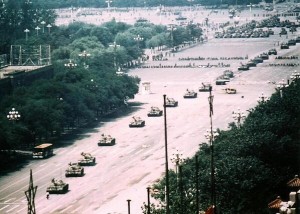
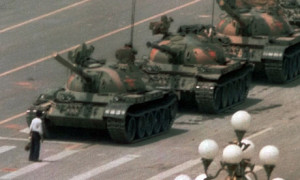
Posted: June 3rd, 2014 | No Comments »
An interesting collection of documents and essays on the Yellow Peril from ancient time to today….
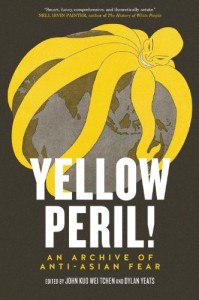
Yellow Peril!: An Archive of Anti-Asian Fear
“Smart, funny, and comprehensive.†– Nell Irvin Painter
The “yellow peril†is one of the oldest and most pervasive racist ideas in Western culture—dating back to the birth of European colonialism during the Enlightenment. Yet while Fu Manchu looks almost quaint today, the prejudices that gave him life persist in modern culture. Yellow Peril! is the first comprehensive repository of anti-Asian images and writing, and it surveys the extent of this iniquitous form of paranoia.
Written by two dedicated scholars and replete with paintings, photographs, and images drawn from pulp novels, posters, comics, theatrical productions, movies, propagandistic and pseudo-scholarly literature, and a varied world of pop culture ephemera, this is both a unique and fascinating archive and a modern analysis of this crucial historical formation.
Posted: June 2nd, 2014 | No Comments »
I’m obviously always interested in just how many copies China books really sell – I have a theory (which I guess I could check if I had access to Bookscan and similar sales data) that China books generate a lot of buzz but, with the exception of a few, don’t always deliver in volume sales terms – i.e. people gas a lot about new China books, review them, go to events around them, but don’t always actually read them. I’m not sure this was true historically though and so a little factoid of interest I came across the other day. Last year I blogged about Henry Champly’s Le Chemin de Changhai (Road to Shanghai: White Slave Traffic in Asia, as the English edition was called). In the 1903s it sold very well indeed and does contain some interesting information and anecdotes if you can past the racism, Yellow Peril, anti-Semitism and hectoring. Interestingly, I recently read (courtesy of Michael Miller’s excellent Shanghai on the Metro: Spies, Intrigue and the French Between the Wars) that the French edition sold over 100,000 copies.
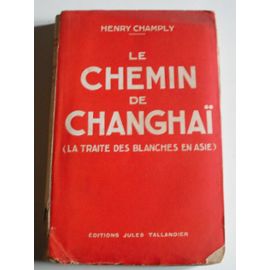

Posted: June 2nd, 2014 | No Comments »
A quick plug for Adam Brookes’s new contemporary Beijing-set spy thriller Night Heron which really delivers. I think most China Hands have been somewhat repeatedly disappointed by the recent crop of PRC-set thrillers with none quite hitting the mark, but Brookes, it appears, has pulled it off. Anyway, I’ve reviewed in more detail over at the Los Angeles Review of Books here. I very much doubt anyone with a taste for spy literature and with a good knowledge of China and Beijing would be disappointed by this one.
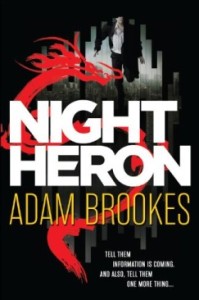
Posted: May 31st, 2014 | 1 Comment »
An interesting small footnote to World War One with a China link. Werner Otto von Hentig has long interested me a bit. Born in Berlin in 1886, von Hentig was a German diplomat who became a critic of the Nazis and who, though he served in the Third Reich, intervened to save Jews, and was instrumental in arranging for thousands of Jews to be transferred to from Germany to Palestine during the 1930s. Back in 1909 he had been assigned to the German Embassy (Legation) in Peking and was in the city for the 1911 revolution. He was wounded in WW1 and then appointed a leader to the German Mission to Kabul in 1915, a collective of Indian, German and Ottoman military and diplomatic personnel sent to Kabul to try to convince Emir Habibullah of Afghanistan to join the Central Powers and rise up in a Jihad against the British in India thereby distracting troops from the European front and the Dardanelles.
Â
Ultimately they failed to convince the Emir (who rather cleverly took bribes from the Germans and the British and then supported neither). Â The Indian nationalists remained to set up a Provisional Indian Government in exile which was disbanded in 1918. Von Hentig’s journey out of Kabul was eventual and a mad dash across Turkestan (Xinjiang is you must) and the Gobi eventually to Shanghai where he managed to get on a boat to America. The Americans then repatriated him back to Berlin with a failed mission but a hell of a dinner party story.
His memoirs of this time are, I think, pretty interesting – Von Kabul nach Shanghai – but only in German as far as I know and my schoolboy German is simply not up to it I’m afraid. If any Germans out there would care to read it and tell me any interesting thoughts von Hentig had on Peking and Shanghai I’d love to know….
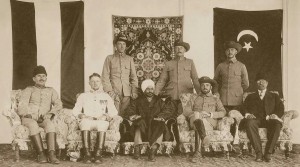
Left to right – Kâzım Orbay, Werner von Hentig, Walter Röhr, Mahendra Pratap, Kurt Wagner, Oskar Niedermayer, Günther Voigt and Maulavi Barkatullah
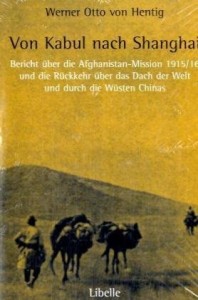
Posted: May 30th, 2014 | No Comments »
Alex Monro’s (an old Shanghailander himself of recent vintage) The Paper Trail is now out….
The story of how a Chinese invention has wrapped itself around our world,
with history’s most momentous ideas etched upon its surface
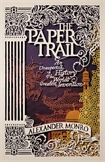
Â
Â
It can be eaten as rice paper or it can carry regurgitated food as an airplane sick bag. Paper can cover a spot and it can cut a finger. Children have made handheld aeroplanes out of it and assassins have moistened it to block a sleeping victim’s nostrils before strangulation. It can last for hundreds of years but it can also disappear with moisture in minutes or be eaten by bookworms in a few days. It can be as mundane and practical as a bus ticket or it can be as prized and expensive as the interface of the world’s greatest paintings.
Â
The Paper Trail tells the story of how a simple Chinese product has for two millennia allowed knowledge, ideas and religions to spread at an unprecedented rate around the world.
Â
Alex Monro traces this groundbreaking invention’s voyage, beginning with the Buddhist translators responsible for its spread across China and Japan, and follows it westward along the Silk Road, where it eventually became the surface of the Quran.
Â
Once paper reached Europe, it became indispensable to the scholars who manufactured the Renaissance and Reformation from their desks. As Monro uncovers, paper created a world in which free thinking could flourish, and brought disciplines from science to music into a new age.
Â
Alex Monro studied Chinese at the University of Cambridge and in Beijing before working for The Times in London and for Reuters in Shanghai. He has contributed chapters to The Dragon Throne (a history of China’s dynasties) and The Seventy Great Journeys in History, and edited two travel poetry anthologies, including China: City and Exile.
Â
In 2011, he won the Royal Society of Literature’s Jerwood Award for Non-Fiction for The Paper Trail. He lives with his wife in the Cotswolds, and writes on contemporary China.
Posted: May 29th, 2014 | 1 Comment »
Jacques Deval (who’s real name was Jacques Boularan) was a French writer, playwright and director born in 1875. His is perhaps now best remembered for his play Tovaritch that became a 1937 film of the same name starring Claudette Colbert and Charles Boyer, a classic tale of White Russians fled to Paris.
However Boularan/Deval also wrote a journal of his trip to the Far East entitled Rives Pacifiques (Pacific Rivers, I guess, though to my knowledge it’s never been translated into English), published by Gallimard in 1937. Therefore Deval straddles two interests of mine – Paris and Asia in the 1930s.

